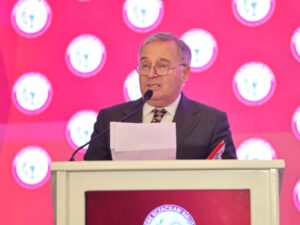
This valuable account below highlights Prof. Dr. İhsan Çalış’s 52-year journey in academia and pharmacy. From his early career at Hacettepe University to his pioneering work in pharmacognosy, Prof. Dr. Çalış has made significant contributions to science while also supporting and mentoring young researchers. His work reflects the interdisciplinary nature of pharmacognosy and his commitment to sharing of knowledge. We extend our gratitude to Prof. Dr. Çalış for this meaningful contribution, which will serve as a guide and inspiration for future generations of scientists.
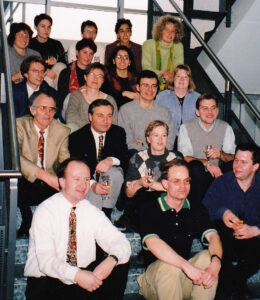
I graduated from Ankara University Faculty of Pharmacy in June 1972. I began my academic career at Hacettepe University Faculty of Pharmacy in the Department of Pharmacognosy. During our first meeting, the chair of the department and my PhD thesis advisor began by saying, ‘Plants synthesize more interesting molecules.’ This idea intrigued me. I decided to give it a try, and I started. During my student years, my initial plan was to synthesize drug candidate molecules. However, I found myself drawn to the chemistry of medicinal plants. It was a great start, and we were a fantastic team.
![]() “The environment you work in and the intellectual level of the academics around you are among the most important criteria for achieving your ideals. We had that.”
“The environment you work in and the intellectual level of the academics around you are among the most important criteria for achieving your ideals. We had that.”

In the early 1970s, while working with the resources available at the time, I was trying to keep up with the global literature using methods that, compared to today, took considerably longer. we used keywords derived from reference book to choose and apply the right methods for similar studies. We would classify information obtained from Chemical Abstracts Service Index (CAS Source Index) searches, which published summaries of studies in various fields, including many scientific journals pertaining to chemistry, by recording it onto cards. We were essentially creating a card index system, categorizing studies under specific topics.
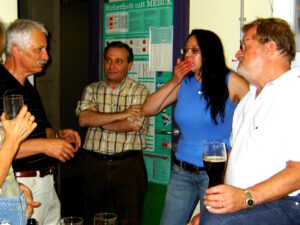
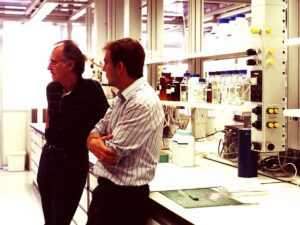
Pharmacognosy is an interdisciplinary science that examines medicinal raw materials of natural origin, and is the foundation of medicine and pharmacy. A significant portion of these natural resources come from terrestrial plants. Pharmacognostic research has expanded to the molecular level with the advancement of chemistry and the introduction of chromatographic and spectroscopic methods. These developments led me to unravel the mysteries of plants. Indeed, every plant species I have worked on to date has become the focus of my research, thanks to the different phytochemicals they contain. This has made it possible, through multidisciplinary studies, to understand which chemicals are responsible for the effects of folk medicines that have been used for thousands of years.
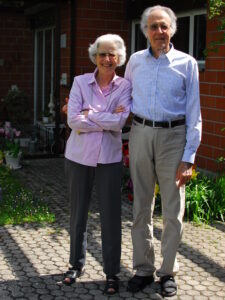
“If you want to make a decision about yourself, never let others stand in the way of that decision!”
I learned an incredible lot at ETH-Zurich. When I sat down in front of Prof. Sticher with the draft of my first article, before he even started reading, he asked me this question:

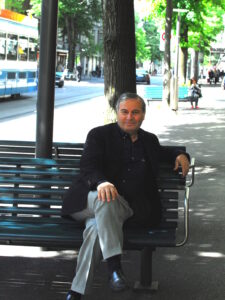
I also facilitated the provision of the opportunities for my students. It is imperative to allow young people and their ideas to flourish. Otherwise, we will only raise individuals who are similar to ourselves. We must encourage them to participate in high-quality scientific meetings. These environments help us meet different ideas and partners.
“The value of scientific research is enhanced by being interdisciplinary in character”
I listened attentively to the speech by Swiss chemist and physicist Richard Robert Ernst (1933–2021, Winterthur), at a graduation ceremony I attended at ETH. He was awarded the 1991 Nobel Prize in Chemistry for his work on the development of high-resolution NMR spectroscopy. One sentence he said has stayed with me: ‘Never begin research with the mindset of being the first to do it.’ I made this my principle. I became more discerning in my topic selections.
The region we live in, and the academic world, is full of people who are ambitious, driven by desire, and always wanting to be at the top and in control. We were often pressured by our mentors, sometimes even worn down.
“Having experienced this deeply, I made a promise to myself that my students must surpass me”
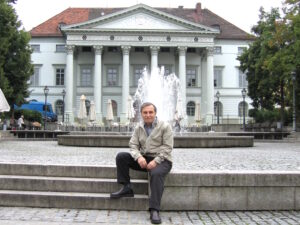
The truth is that “academic life is a lifestyle.” You begin with this understanding and acceptance. This motto has held a place in my mind as a thought, a principle, and a slogan that never leaves me. “When a person’s profession becomes their way of life, they neither tire nor grow weary, they continuously produce, and each time it moves them one step forward.” I believe this is why, on the 52nd anniversary of my academic career, I continue to work with the same passion and excitement without feeling tired.
Academic life is also a team effort. Therefore, I would like to extend my heartfelt thanks to all my Master’s and PhD students, my colleagues with whom I have collaborated on projects, the co-authors of my works whom I can’t name individually, and the scientists from various countries with whom I still collaborate, as well as the support staff.
“Science is about sharing; it should not be done solely for academic titles. Each of us receives our share from this soup of knowledge in proportion to the size of our spoon.”
As for my awards, one of the most significant reasons I was nominated for these honors is my contributions to pharmacy education at both undergraduate and graduate levels, as well as the more than 250 new molecules I have introduced to science in the fields of Pharmacognosy and Plant Chemistry.
The awards I have received are:
- Hacettepe University Science Award for the 1998-1999 Academic Year,
- TÜBİTAK Science Award in the Field of Health Sciences in 2001,
- Marmara University Faculty of Pharmacy Academic Award in 2005, and lastly,
- The 2024 TEB Pharmacy Academy Science Award.
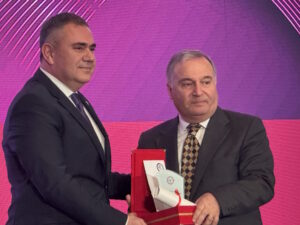
Everything truly begins with a family. Your personality takes root and grows in an environment shaped by your parents and siblings. My greatest fortune is my family. First and foremost, I remember with gratitude my beloved mother and father, who raised me, and I thank my siblings, who have always been by my side and supported me. I also want to express my gratitude to all my teachers who have shaped me at every stage, beginning with my early school years. Of course, I thank my dear wife Ayşe, who has always supported me selflessly, my colleague, and my emotional and financial support, as well as my beloved children, B. Deniz, Betül, Can, and Ali, and my precious grandchildren, Eren and Bade.
Prof. Dr. İhsan Çalış
October 2024
Who is Prof. Dr. İhsan Çalış?

Prof. Dr. Çalış has served as an assistant advisor for eight doctoral theses at ETH Zurich and the University of Regensburg. He was also among the founders of the Turkish Doping Control Foundation and the Hacettepe University Pharmacognosy Research Association. Prof. Çalış, working at the Near East University since 2006, pioneered the establishment of the Faculty of Pharmacy and the Institute of Health Sciences. Prof. Dr. Çalış, whose main areas of study are the isolation and characterization of glycosides and secondary metabolites of medicinal plants, has introduced more than 250 new compounds to the scientific world with his studies to date. In 2018, he was honored by naming a plant species (Astragalus ihsancalisii Dönmez & Uğurlu) after him.
He has published more than 230 articles in internationally refereed journals and has been deemed worthy of numerous awards, was also included in the “100 Turks Leading Science” list of Turkishtime Magazine. Prof. İhsan Çalış, who has been serving as the Dean of the Faculty of Pharmacy at the Near East University since 2015, is the recipient of the 1998-1999 Hacettepe University Science Award, the 2005 Marmara University Academician Award, and the 2001 TÜBİTAK Science Award in the field of health sciences.